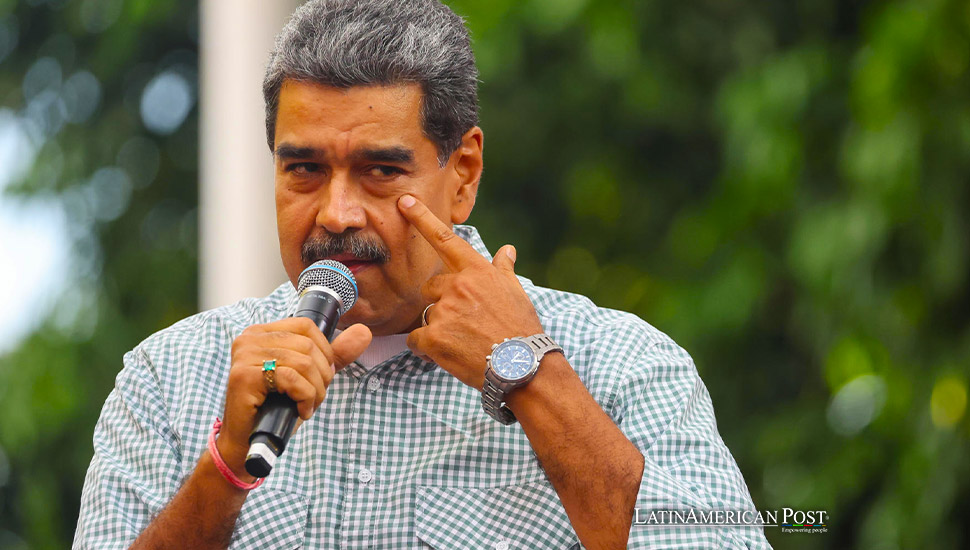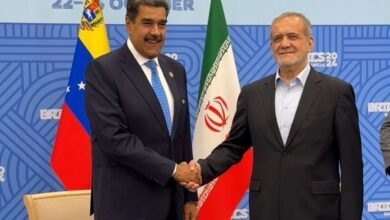Statistical Analisis of Electoral Fraud Allegations in Venezuela’s 2024 Presidential Election

Venezuela’s 2024 presidential election has been fraught with controversy, particularly allegations of electoral fraud. Utilizing sophisticated statistical models, Professor Walter R. Mebane, Jr. of the University of Michigan illuminates the extent of these allegations, revealing surprising insights into the integrity of the election.
The 2024 presidential election in Venezuela was a flashpoint for controversy, with widespread skepticism about the integrity of the voting process. At the heart of the dispute was a dataset comprising 81.7 percent of the acts, or official vote tallies, from the election collected and published by Venezuela’s leading opposition party. According to these data, opposition candidate Edmundo González received 7,156,462 votes, while the incumbent, Nicolás Maduro, garnered only 3,241,461 votes out of a total of 10,659,128 valid votes cast across ten candidates. Despite González’s significant lead, allegations of fraud quickly surfaced, prompting a deeper statistical analysis to determine the validity of the results.
Understanding the Eforensics Model
To investigate these allegations, Professor Walter R. Mebane, Jr., an expert in political science and statistics, employed the Eforensics model—a sophisticated statistical tool designed to detect different types of electoral fraud. The Eforensics model operates on the principle of a finite mixture model, identifying three possible types of fraud: “no fraud,” “incremental frauds,”and “extreme frauds.” The model estimates the number of fraudulent votes for the candidate identified as the “leader”—in this case, González—who could benefit from electoral fraud.
Mebane’s analysis revealed that only two of the dataset’s 24,532 mesas (polling stations) exhibited signs of fraud. A minuscule number of fraudulent votes—57.9 out of over 10 million—fell well within the model’s 99.5% credible interval, which included zero as a lower bound. This suggests that the number of fraudulent votes was statistically insignificant, and there may have been no fraudulent votes for González.
Comparing Fraud in Previous Venezuelan Elections
To further elucidate the integrity of the 2024 election and the validity of Mebane’s findings, it’s essential to delve into the historical context of Venezuelan elections. Mebane’s analysis of previous polls between 2000 and 2013 using the same Eforensics model revealed varying electoral irregularities. For instance, the 2000 presidential election, won by Hugo Chávez, showed more substantial evidence of fraud, with 42 mesas exhibiting incremental fraud and 23 showing extreme fraud. This resulted in an estimated 6,870 fraudulent votes—significantly higher than observed in the 2024 election.
The 2006 presidential election presented an even more troubling picture, with over 56,000 fraudulent votes across 1,185 mesas, suggesting pervasive manipulation of the electoral process during Chávez’s tenure. Similarly, the 2013 election, in which Maduro was first elected, showed approximately 10,390 fraudulent votes spread across 130 mesas. While lower than in 2006, these figures still indicated significant interference that could have impacted the election outcome.
In stark contrast, the 2024 election’s minuscule number of fraudulent votes, as identified by the Eforensics model, highlights a dramatic improvement in electoral integrity. Whether this improvement is due to better oversight, reduced opportunities for fraud, or changes in voter behavior remains an open question. However, the data suggests the 2024 election was among the cleanest in recent Venezuelan history.
Implications of the Findings on Venezuela’s Political Future
Mebane’s findings raise critical questions about the future of Venezuelan democracy and the legitimacy of its electoral processes. While the 2024 election appears to have been one of the cleanest in recent history, the significant lead held by opposition candidate González, coupled with the minuscule number of fraudulent votes, suggests that the will of the Venezuelan electorate was likely accurately represented.
The broader historical context, however, underscores the chronic issues of electoral fraud in Venezuela. The relatively clean 2024 election is an outlier rather than the beginning of a new era of electoral integrity. The consistent fraud patterns in previous elections suggest deep-rooted problems within the country’s political system, raising concerns about whether this apparent improvement can be sustained in future elections.
Moreover, the statistical rigor of the EForensics analysis and the transparency of the opposition’s data were crucial in assessing the election’s integrity. The opposition’s decision to publish a substantial portion of the acts from the 2024 election allowed for rigorous scrutiny, providing a credible basis for evaluating the election results. This transparency and advanced statistical tools like Eforensics are essential in maintaining electoral integrity.
The implications of these findings extend beyond Venezuela’s borders. For international observers and policymakers, understanding the nuances of electoral fraud in Venezuela is crucial for formulating effective responses to the country’s ongoing political crisis. As Venezuela continues to grapple with economic hardships and political instability, the integrity of its electoral process remains a critical factor in determining its path forward.
Also read: Venezuela’s Judiciary: A Tool for Authoritarian Control
While Mebane’s analysis of the 2024 election offers a rare glimmer of hope for Venezuela’s democratic processes, it also serves as a stark reminder of the challenges ahead. The test will be whether future elections can maintain or even improve upon this standard or the country will slip back into the patterns of fraud and manipulation that have marred its recent history. The findings underscore the importance of continued vigilance and reform to ensure that Venezuela can build on this progress and move toward a more stable and democratic future.




